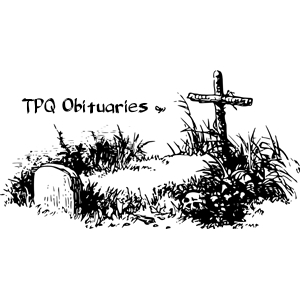It was fitting that Rayner Lysaght’s coffin was bedecked in the Starry Plough at Glasnevin Crematorium in the summer. He was a socialist above all else, and one who stayed the course. Rayner’s political odyssey with its trials, tribulations, ideological battles, and his determination to stay within the Marxist milieu have been usefully documented by those who knew him better than I. What emerges is a picture of a man uncompromisingly steeped in socialist activism for six decades.
In the mid-1980s, while researching for the Questions Of History project in the H Blocks, I picked up a book by an author I had previously not heard of, D.R. O’Connor Lysaght. Its title was The Irish Republic and it’s Marxist slant seemed appropriate to the task at hand. On the well stacked shelves of the H Block libraries, it ultimately came to sit alongside T.A. Jackson’s Ireland Her Own and Connolly's Labour In Irish History.
Somehow I managed to contact him and from then to my release we corresponded frequently. He was never short on insightful comment and critique on writing I was involved in, including Armed Struggle – A Strategic Imperative. While never judgmental he had an acute understanding of the limitations of the IRA’s armed campaign. He invariably spoke in strategic terms rather than moralising ones. He was a lucid expositor of ideas not a tub-thumping proselytizer for them. I gained immensely from those exchanges: his patience, his articulation, his erudition. The type of discussions we would have might seem esoteric by the standards of today - on whether the Irish capitalist class constituted a comprador bourgeoisie similar to the Indian one fought against by the Naxalites, or a national one. Such were the type of things that were central to our theorising in the blocks, although to most others it sounded like what Danny Morrison once described as Marxist Esperanto.
Yet, Rayner was not some airy-fairy bohemian wannabe revolutionary waving a fist in his 20s and a gavel in his 50s. As Jim Monaghan observed:
I remember way back, a then Leftist making a disparaging remark about Rayner. Paddy Healy told me that when a lot like this person retreated into well paid jobs and careers, Rayner would still be selling a leftwing paper outside a meeting.
And so it proved to be. After release from prison I met up with him, usually at left wing events, which he frequented in Dublin’s Teachers’ Club and Connolly Books. But like much else as the years passed we were preoccupied with our own things and our paths ceased to cross. I grew increasingly disinterested in meetings of the Left, where schism rather than strategy seemed to be top of the menu. He did appear at an event a few years ago, which I also attended. Before I got the opportunity to approach him, I found myself having to rush off early to catch a bus.
Born in Cardiff 80 years ago Rayner attended a university in Ireland which helped launch his deserved reputation as a formidable historian of Labour. While his mother was leader of the Conservative Party in South Wales:
he claimed descent from distinguished ancestors and was proud of it. From Fergus O'Connor, the leader of the revolutionary wing of Chartism and earlier an O'Connellite Repeal-the-Act-of-Union MP; from Arthur O'Connor, United Irishman and distinguished Napoleonic soldier; all the way back to the last crowned High King of Ireland, Rory O'Connor, in the mid-12th century.
With a CV like that he very much would have appreciated being described as a renegade from the ruling class.
.... he can see that his great bugbear, the IRA is becoming increasingly isolated. Yet, outside the Council chambers, reality remains. All the "peace" marches in the world, even backed by censorship, cannot hide the fact that the Northern crisis is more than just the sum total of senseless crimes committed by psychopaths.
This was an important observation made in October 1976, a month after the onset of the blanket protest that would come to send seismic tremors throughout the political system North and South.







What a warm tribute. Many thanks for doing this. Some of his writings online here. https://www.marxists.org/history/etol/writers/lysaght/index.htm and here. and here http://www.workersrepublic.org/
ReplyDeleteThe Republic of Ireland book is here. https://redmolerising.wordpress.com/?s=Lysaght, included in a list
Again thanks
Thanks Jim - he was a man I learned quite a lot from.
ReplyDeleteHe was a man we all learned from. He was funny as well, and his party piece (From "The Pirates of Penzance" if i'm not mistaken) was celebrated at PD gatherings across Dublin in the late 70's and early 80's. And possibly beyond. I saw less of him after I left PD in late 1981. But that's a story for another day.
ReplyDeleteEnjoyed this eulogy. While I never met the man, his name rang a bell. I believe, mostly likely, I read his book in jail. He must have possessed real stamina to have stayed the course over a long life. Unlike the Sixties generation that promised so much only to deliver so little, this appears to have stayed true to his values. A rare commodity in the world of politics.
ReplyDeleteAlex
The last comment did not make it through. TPQ does not publish comments from "Unknown". It leads to too much confusion when there are multiple users posting as "Unknown". If your comment is for publication sign off on it.
ReplyDelete